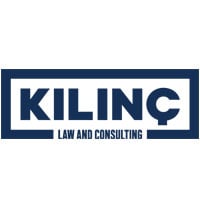

Chief legal counsel | Kazancı Holding



Belda Öztürk
Chief legal counsel | Kazancı Holding
Team size: 10-15
What has been the number one challenge that has impacted you over the past year?
At the end of last year, I had a major career change which has impacted me in a variety of ways. I had been working for Hattat Holding in various roles since 2013, and as chief legal counsel since 2019. As an in-house counsel, the day-to-day challenges never end, however it gets easier to feel complacent and fall into a routine.
I believe that mental challenges are the keys for professional growth. The lack of mental challenges may result in a lack of motivation and, eventually, you may find yourself questioning your purpose. As we spend most of our conscious time at work, and contemplating work, such a state of mind directly affects your quality of life.
In my position as the general counsel for a new holding company, Kazancı Holding, although the position is namely the same, the requirements are quite different. Within the law department and within the ranks of many group companies, I am still in the process of gaining confidence and making my professional assets and possible added values known and relied on. After so many years of taking the level of trust placed on me by my team, colleagues and employers for granted, it is quite a challenge to start over. The key, I believe, is to prove that you are one of them instead of a stranger. As such, the process is not a fast one and demands strength of character and conviction in one’s own abilities.
In your opinion, what areas should in-house lawyers focus on over the next few years to prove value to their organisations in Türkiye?
The definition of the role of an in-house lawyer has transformed through the course of years. Once the role was confined to representing the company before a court of law, revising contracts and the occasional legal opinions. Then, the functions of compliance and ethics, as they were more and more implemented by the companies, were considered within the role of the in-house counsel. However, as the general awareness for sustainability and environmental, social and governance (ESG) rules are raised, the role of the in-house counsel is yet changing and expanding.
For the coming years, I believe the in-house counsel role may prove added value in two major aspects. First, the implementation and sustaining of ESG and their subsequent supervision. The law department, even when the board members do not show an interest and especially in such a case, should lead the way and raise awareness until such a time that the company is in line with its global counterparties. The second role, in which the in-house counsel is closely informed of the field activities of the company as well as financial and operational activities, shall eventually gain the in-house counsel a place at the decision-making table.
Could you share an example of a time when you came up with an innovation that improved how your legal team works and did not come at a large expense?
Key performance indicators, generally known as KPI’s, are a part of corporate life we cannot ignore. Every department within the organisation of a company sets such KPI’s in the beginning of a fiscal year to determine their respective success in the form of a percentage or other nominal results. Thus, enabling the administrative body to be informed of the success or failure of the respective department. However, to have nominal results indicating success or even performance is not quite straightforward with a law department. Hence, the widely adopted assessment of a law department through budgetary data. That is indeed a perception in need of urgent change.
But how can we provide objective, statistical, nominal data so that we need not divulge in theories of law in order to prove our worth? Deus ex machina, enter the IT solutions! In my opinion, automatisation and digitalisation, far from diminishing the human factor, indeed enhances the subtleties. Through dashboards and other such devices, the IT solutions add such value to the law department where the unseen efforts of an in-house counsel may present itself as statistical data to the administrative board. The company may not only track the efforts of the law department through the language they know (numbers), but they may also assess the success or failure by comparing the respective years’ data with one another.